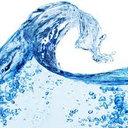Inhibition of autophagy by berberine enhances the survival of H9C2 myocytes following hypoxia.
Raktažodžiai
Santrauka
Hypoxia may induce apoptosis and autophagy to promote cardiomyocyte injury. The present study investigated the effect of berberine, a natural extract of Rhizoma Coptidis, on hypoxia‑induced autophagy and apoptosis in the H9c2 rat myocardial cell line. Expression levels of apoptosis and autophagy markers were upregulated in H9c2 myocytes during hypoxia and cell viability was reduced. However, berberine significantly reduced hypoxia‑induced autophagy in H9c2 myocytes, as demonstrated by the ratio of microtubule‑associated proteins 1A/1B light chain 3 I/II and the expression levels of B‑cell lymphoma 2 (Bcl‑2)/adenovirus E1B 19 kDa protein‑interacting protein 3, and promoted cell viability. In addition, expression levels of the Bcl‑2 anti‑apoptotic protein were significantly downregulated, and expression levels of pro‑apoptotic proteins Bcl‑2‑associated X protein and cleaved caspase‑3 were upregulated during hypoxia injury in cardiac myocytes. This was reversed by treatment with berberine or the autophagy inhibitor 3‑methyladenine, whereas the autophagy agonist rapamycin had the opposite effects, suggesting that berberine reduces myocyte cell death via inhibition of autophagy and apoptosis during hypoxia. In addition, Compound C, a 5' adenosine monophosphate‑activated protein kinase (AMPK) inhibitor, reduced apoptosis and autophagy in hypoxic myocytes, suggesting that the activation of the AMPK signaling pathway may be involved in this process. These findings suggested that berberine protects cells from hypoxia‑induced apoptosis via inhibition of autophagy and suppression of AMPK activation. Therefore, berberine may be a potential therapeutic agent for the treatment of patients with cardiac myocyte injury and ischemia.


